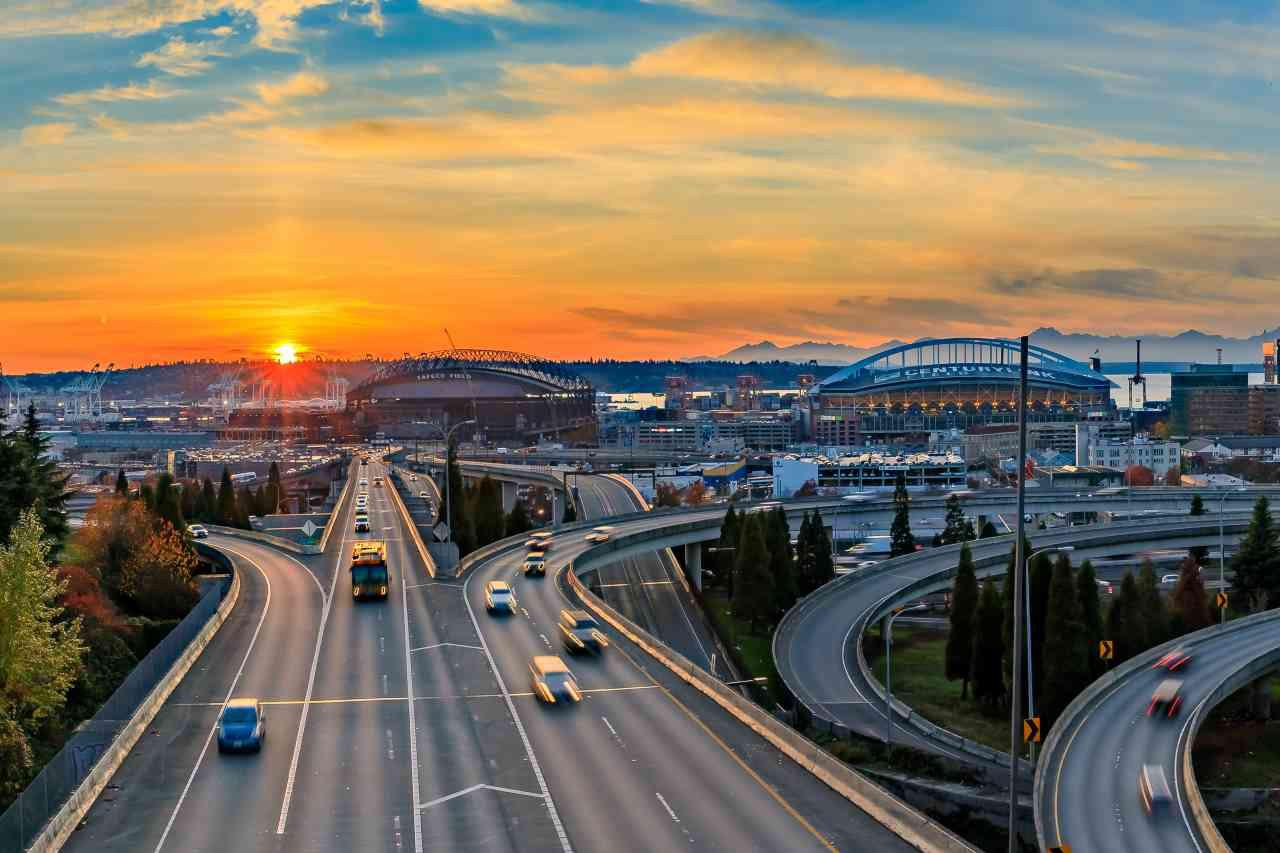Even before COVID-19 cleared the roadways, Seattle’s traffic was already improving relative to other major metros. Just a year ago, Seattle was ranked the 6th most congested major U.S. city. The latest traffic congestion rankings released by INRIX, a traffic data company in Kirkland, show improvement, positioning Seattle in 14th place.
The 2019 Global Traffic Scorecard ranks cities’ car mobility based on the number of hours the average commuter lost sitting in traffic. Overall, Seattle-area car commuters lost 74 hours to congestion delays in 2019. That’s a significant decrease from the 138 hours lost in 2018.
Our geographically diversified economy – with multiple job centers spread across the region – is a key factor influencing commute times. The most popular commuter destinations are downtown Seattle, the University District, downtown Bellevue and the Overlake area of Redmond. Thousands more head to Seattle-Tacoma International Airport, warehouses in the Green River Valley, or to Boeing at Payne Field in Everett.
The INRIX scorecard considered average travel times to these destinations in 2019, revealing Seattle’s overall congestion patterns and hours lost sitting in traffic. (A big reason for the sizeable year-over-year decline in hours lost to traffic is that the 2018 Scorecard analyzed mostly longer commutes, like Everett to downtown Seattle.)
A new metric presented in the 2019 Scorecard is “last mile” congestion. Downtown Seattle endures world-class slowdowns at 11 mph, reflecting stop-and-go trips in freeway funnels such as Howell Street or Fifth Avenue.
INRIX also added ratings for transit and bicycling. Though Seattle ranks sixth in big-city transit ridership per capita, the region ranks poorly for transit commute times, meaning most drivers would spend twice as much time commuting if they traveled by bus or train.
This article was originally published in The Seattle Times by Mike Lindblom.



